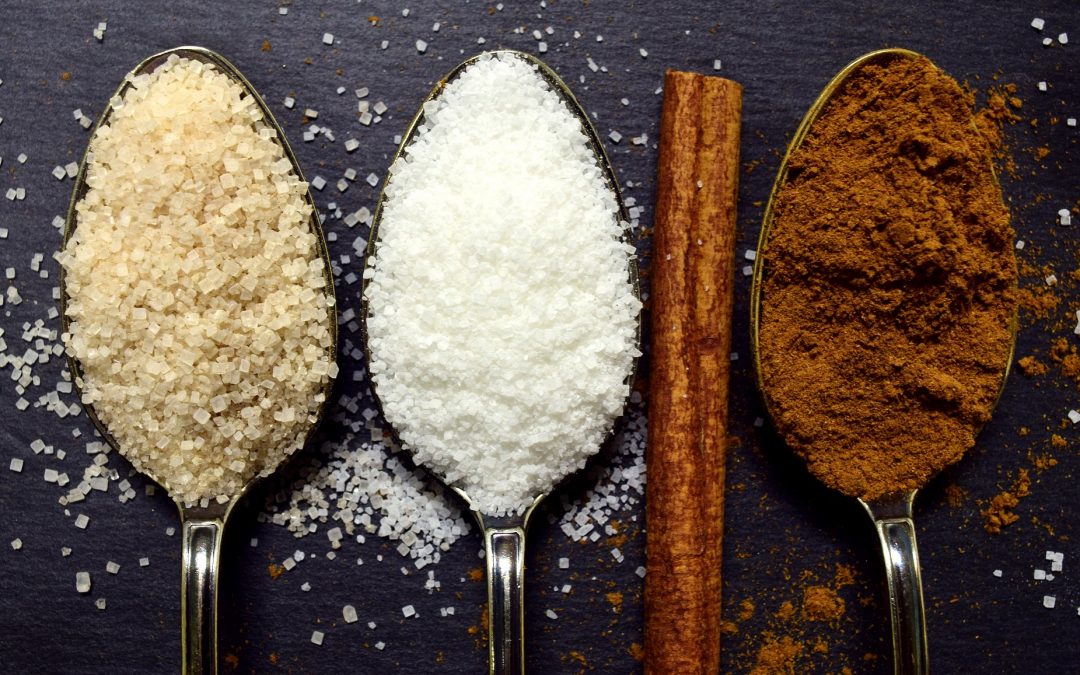I came to realise some years back that I couldn’t tolerate sugar as I used to, and before it became fashionable to do so, I decided to give it up for a while, to see how I felt (my friends all thinking I was a bit crazy). After the initial flu-like symptoms as my body adjusted, (call it a detoxification/‘Herxheimer’ reaction, ‘healing crisis’ or ‘die off’) and after several weeks, I found that my thinking was a lot clearer (the ‘fug’ was gone!) and I felt that my energy was a little more sustainable. Over the years, I’ve fallen off the wagon a few times and each time I again decided to quit the sweet stuff (the most recent was 10 months ago), I had to get through a period of a few weeks where I felt anxious, a bit depressed and the ‘fug’ became worse before coming out the other side with a much clearer head and a bit more energy.
A few notes on sugar: as not all sugars are created equal.
Glucose is the only fuel that our cells can use. Your body processes most carbohydrates you eat into glucose, either to be used immediately for energy or to be stored in muscle cells or the liver as glycogen for later use.
Fructose is found naturally in many fruits and vegetables, added to various beverages and processed foods in the form of high fructose corn syrup. However, it is very different to glucose and is NOT the preferred energy source for muscles or the brain. Fructose is only metabolised in the liver and is also more lipogenic (fat-producing), than glucose. Interesting to note that unlike glucose, it does not cause insulin to be released or stimulate production of the hormone leptin, (which regulates our energy intake and how we use it). It also appears to behave more like fat in the body, unlike other carbohydrates.
Sucrose (table sugar) consists of both glucose and fructose. As the body will use glucose as its main energy source- the excess energy from fructose, if not needed, will be poured into fat synthesis.
Continual over consumption of sugar jams our hormone signals and renders us insensitive to the hormone insulin. Our blood sugar levels rise and we can end up completely insulin resistant which can lead to diabetes and all of its related disorders. While this is happening, sugar stiffens the collagen in our skin, tendons and joints causing premature wrinkles and arthritic symptoms. We also know that sugar feeds candida and can expand their colonies into their more virulent fungal form causing issues such as head fog, fatigue, skin problems and gut issues such as bloating and flatulence.
On a hair mineral analysis (HTMA) chart, an elevated Ca/Mg ratio (referred to as the ‘blood sugar’ ratio) can indicate issues with sugar tolerance and blood sugar issues, more so along with a low Na/K. Since giving up sugar 10 months ago, I halved my Ca/Mg ratio 4 months later on my next HTMA and now it’s even lower still- it’s not at the ideal ratio, but I can definitely feel the difference.
So personally I know I don’t tolerate processed sugar well, I am fine with a bit of fruit (berries mainly!) and I certainly don’t want to demonise all fruit- so the message here is choose your sugars well. Stevia is a natural herbal sweetener that is anti-fungal, anti-inflammatory, and will not affect blood sugar levels. I use it a lot in baking, or use bananas, usually when I make a cake of some sort (check out my banana bread recipe here). When I do have chocolate, I choose dark chocolate sweetened with stevia like this one here.
I also use a teaspoon of cinnamon in my porridge not only to add flavour, but it also helps with sugar cravings.
Sources: Deep Nutrition, Why Your Genes Need Traditional Food, Catherine Shanahan, M.D.


Recent Comments